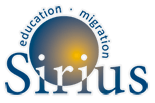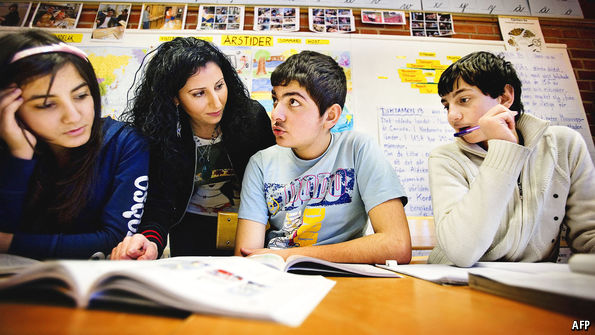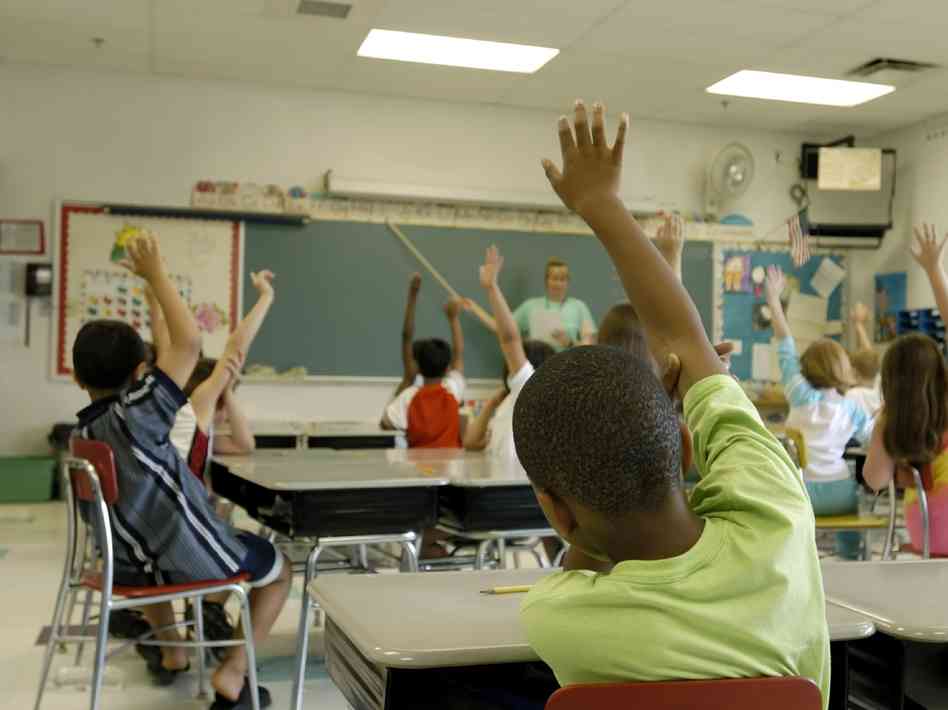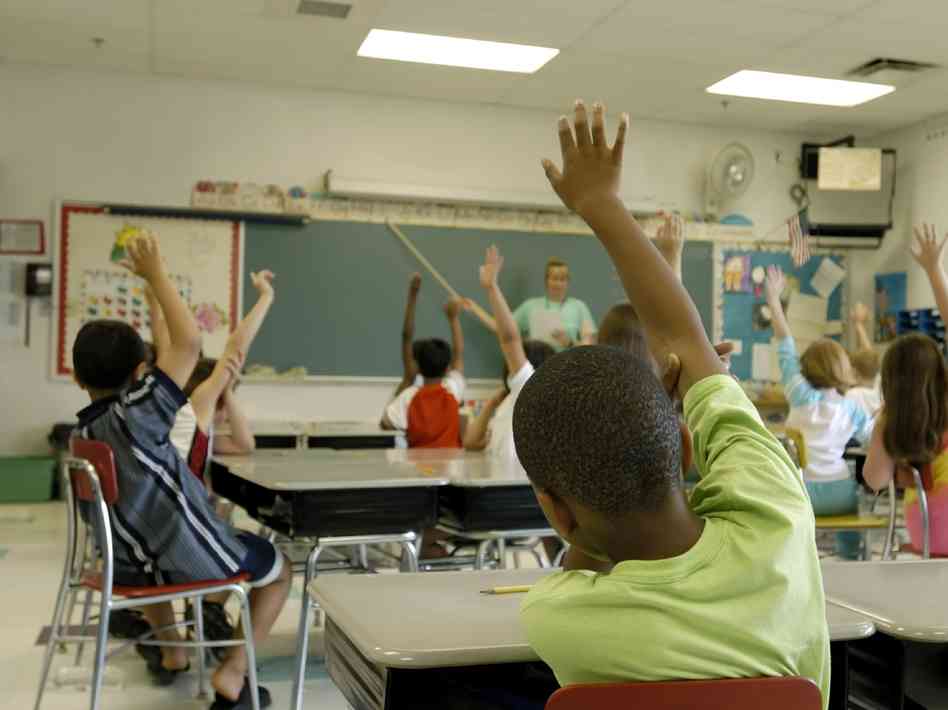A Synthesis of Good Practices in Teachers’ Professional Development in Primary and Secondary Schools
Continue readingImproving interactions in the classroom
TEACHERS MIGRANT BACKGROUND REPORT
This report describes the results of an activity with teachers from migrant and minority backgrounds. The intention was to elaborate on teacher competences in diverse classrooms. The report is intended to be a valuable source for teacher training institutes as well as professional development organizations from across Europe aiming to prepare teachers for diversity.
The following questions were raised and answered:
- 1. What does it mean to teach in diverse classrooms?
- 2. What works in diverse classrooms?
- 3. What are the areas of expertise needed in diverse classrooms?
- 4. How can teachers acquire this expertise?
- 5. How can we attract more teachers from migrant and minority backgrounds?
LANGUAGE SUPPORT FOR MIGRANT CHILDREN IN EARLY SCHOOL YEARS: MAPPING EUROPEAN POLICIES
The first part of this report gives an overview of the various studies, workshops and expert meetings that were organized within the SIRIUS framework with regard to language policies. However, an important question that was left unanswered, was: why are language policies the way they are? Why have some governments decided to support mother tongue instruction whereas most others have not? Several explanations have been offered – notably the financial aspect and the complications of organizing mother tongue and second language instruction for many different groups of migrant students – but there has not yet been a systematic survey on the reasoning behind the policies.
The second part of this report contains the results of the mapping exercise that was conducted among 12 SIRIUS member states. The survey was not meant to result in extensive analyses of the existing language policies, but to underpin the organization of two trilateral country meetings for policy makers, enabling them to exchange and question their different positions.
Part 3 provides a summary of the trilateral meetings. During these meetings, language policies were discussed from three different national perspectives. The first trilateral meeting was organized in Amsterdam, the Netherlands, with participants from the
Netherlands, Germany and Austria. The second meeting took place in Tallinn, Estonia, with participants from Estonia, Spain and Norway. Countries with divergent language policies were selected, to allow for a real exchange about the decision making behind the policies.
Implementing policies and networking
Migrant education opportunities in the Baltic States: strong dependence on the level of school preparedness
The purpose of this policy paper is to explore the national policy measures related to pupils with a migrant background in the three Baltic States: Estonia, Latvia and Lithuania. The paper aims to identify similarities of policy responses to specific educational needs related to migrant background and point out the differences in approaches, bringing forward the examples of successful practice.
The paper serves as an overview of the topic in the Baltic region, which aims to enable mutual learning and inspire the development of most effective strategies in order to shape education policies towards greater inclusiveness to respond to the diverse needs of the learners.
National meetings 2014 reports
This document presents the most important conclusions of SIRIUS National Meetings carried out during 2014.
Policy makers
Policy makers meeting report
This document are the minutes of the Policy Makers Meeting that took place on 3-4 April 2014 in Barcelona (Spain).
Forum of experiences of policy makers report
This report collects all the conclusions of the Forum of Experiences of Policy makers that took place in June 2014 in Riga (Latvia).
Involving the community in education
Brochure on Mentoring
This brochure presents a certain range of different kinds of projects making use in one way or the other of the mentoring methodology.
Parental Involving Report
This report collects some initiatives of parents and organisations of immigrant or ethnic minority background that can inspire some actions in the field of parents involvement in education.
Improving interactions in the classroom
Peer Reviews
During 2013 the SIRIUS Policy Network organised two peer reviews. The first one, about Equal Educational Opportunities policy (EEO policy), took place in Antwerp (Belgium). And the second one, in Oslo (Norway), was about NAFO actions. You can find the reports on these activities below.
Report with Recommendations on Professional Capacity
This report summarizes the SIRIUS activities in 2012 and 2103 in the area of professional capacity focused on the educational position of students with a migrant background. In combination with an overview of the literature, a set of conclusions were drawn and the main recommendations in this particular area were formulated.
Report on Citizenship Education
This report on Citizenship Education includes an overview of the literature available about citizenship, citizenship education and citizenship education and diversity. It also looks at the approach to citizenship education in the different countries of the EU, based on information compiled through an online survey completed by SIRIUS experts of 12 countries.
Implementing policies and networking
National Round Tables Report
This report collects the main issues discussed during the National Round Tables that took place in 2013. It is structured by two main chapters. The first chapter provides and overview of the National Round Tables (NRT) regarding their topics, the profiles and numbers of participants, the structure and different parts of the events (presentations, working groups etc.), and the main conclusions. The second chapter takes a closer look at the content of the NRTs – the discussed issues and respective recommendations and challenges. An attempt was made to organize the content chapter in a similar manner as was done for the chapter on “Perceptions on the implementation of the Council conclusions on the education of children with a migrant background” of the Report on National Policy Implementation Processes”1, which is based on a synthesis of Focus Group discussions in the members states of the SIRIUS Network, in order to enable a comparison between the arguments of both events.
Thematic Workshops
During 2013 we organised three thematic workshops on three topics related to education and migration policies and specially to Early School Leaving. The topics were: school transitions, integration and segregation, and language support policies. You can download the three thematic reports and the synthesis one below:
Implementing policies and networking
Country Reviews 2012
This document is the comparative result of the focus groups carried out during 2012 in different countries of the SIRIUS policy network.
Literature Review
This literature review is part of the work done by the Collaborative Partners during 2012. It was the theoretical basis of this network back in 2012.
Mapping European Stakeholders on Migrant Education
This SIRIUS Network study was undertaken with the purpose of mapping the positions of European civil society stakeholders and some stakeholders in EU member states on the education of migrants in Europe. What are the key areas of education policy where European education and migration stakeholders’ positions coincide with each other and with local stakeholders, and what are the areas where they diverge?
The report presents the views and positions of organisations with a voice in Brussels and also of organisations representing parts of immigrant constituency in education in EU Member States. This project was supported by a grant from the Open Society Foundations.
This report lists the areas of interest of stakeholders promoting more effective inclusion of migrants in education across Europe, and was intended to give the SIRIUS national and collaborative partners the information about the network’s constituency that they needed to make major strategic choices.
Involving the community in education
Mentoring: Mapping the terrain in receiving countries
The aim of the mapping exercise which is reported in this document was three-fold:
- to map the broader field on educational support projects initiated by immigrant organizations (or involving immigrants in significant share) in selected countries;
- to identify projects that make use of the mentor idea or projects that use related methodologies (for instance homework classes, music or sports activities that make use of students as mentors or supervisors);
- to identify potential NGO-organizations that could be interested in broadening their scope and applying the mentor methodology.
Handbook on Mentoring
As part of the SIRIUS network, in 2012 the European Network for Educational Support Projects (ENESP) was founded as a platform for exchange and cooperation between mentoring programs from six European countries. All the projects in the network put a strong emphasis on intercultural sensitivity in mentoring. Some were even started by immigrant or ethnic minority organisations, in others children of immigrants play a central role – not only as mentees, but also as mentors or even in the project coordination. For the ENESP-network it is essential to value particularly the educational resources in the immigrant communities themselves.
Goals of the handbook
With this handbook, the member organisations of ENESP want to share their experience in organising mentoring programs which respect and acknowledge the cultural backgrounds of the mentees. As the network itself, the handbook profits strongly from the exchange across country borders. This exchange has highlighted the fact that mentoring projects share a lot of common aspects, including the potential positive impacts, but also many challenges for creating sustainable good practices. The portraits and materials collected in this handbook show that interculturally sensitive mentoring is possible and how it can be implemented.
Improving interactions in the classroom
Professional capacity in Schools as regards education for migrant children
The report describes the results of a survey conducted in the Sirius network countries. Sirius is a European network aimed at contributing towards closing the achievement gap between students from native and migrant backgrounds. The survey was conducted as part of a work package 2 on schooling, and endeavours to answer the following question: “What policy measures and policy plans aim to strengthen the professional capacity of schools as regards the educational position of children with a migrant background?”
Peer Review Report Zagreb
This report presents the conclusions of the peer review organised in Zagreb from 10th to 11th October 2012.










